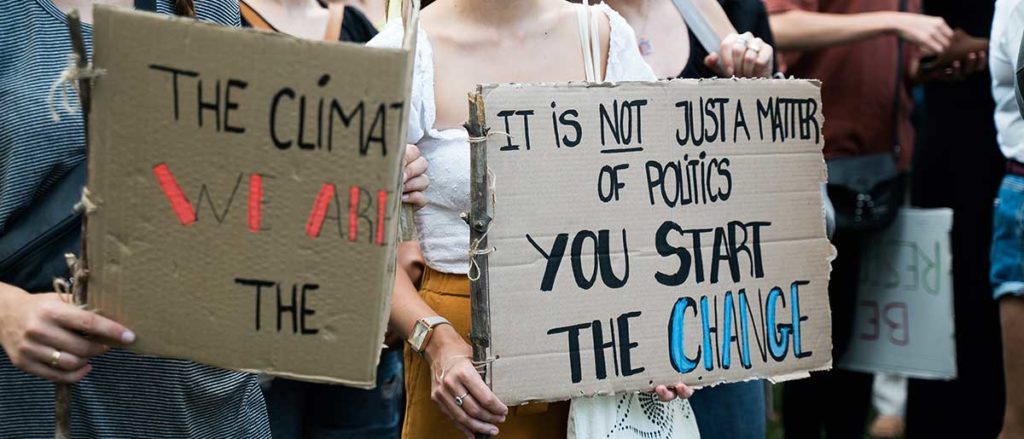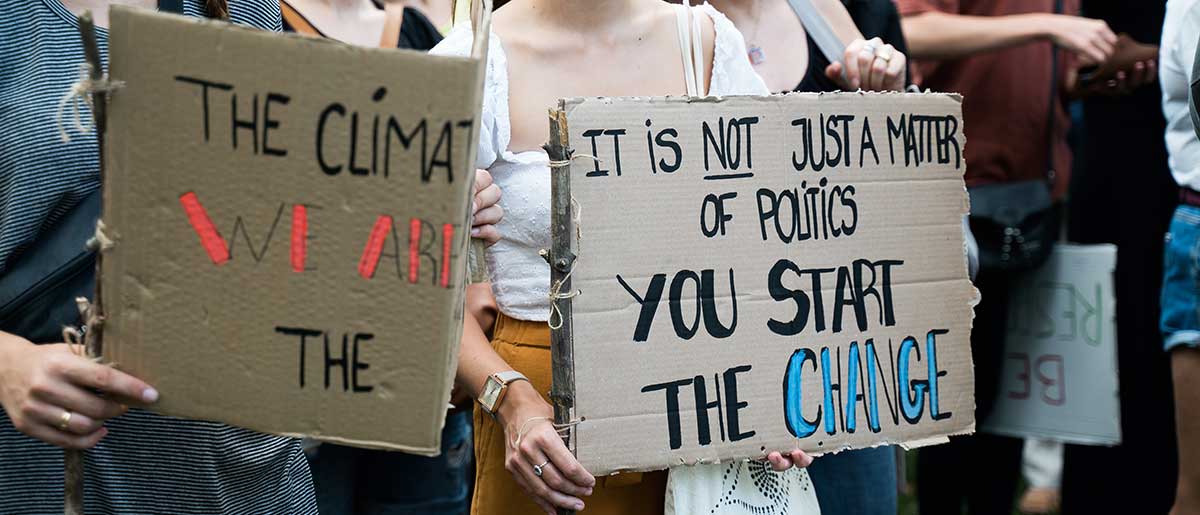
After the Supreme Court EPA Ruling, What Can We Do?

Over the past two weeks, the U.S. Supreme Court has declared open season on government regulation of pollution and numerous well-established rights. The conservative justices’ ruling in West Virginia v. the Environmental Protection Agency (EPA) will force the EPA to regulate greenhouse gas emissions on a case-by-case basis instead of setting and enforcing national standards. Without that national regulatory mechanism, stewardship of the environment and making changes to end climate change falls to each American and their lifestyle decisions, votes, and voice when shopping.
We must not rest in the face of these losses in court but it’s also necessary to recognize the political worm has turned. Over decades, a cadre of far-right justices has been installed on the Court and during June they did more than flex their muscles, they declared victory when they announced that legal precedent will not protect the laws and rights their ideology despises. Women lost the right to choose, as the Court said choice is a matter of state preference. Six states’ rules on carrying concealed weapons were voided but in this case, the Court majority does not honor long-standing state law designed to protect public safety. Justice Alito also announced the end of stare decisis, the rule that the Court must respect previous decisions, and Justice Thomas wrote that the rights to contraception, gay marriage, and sexual relations now need to be reconsidered, which is an invitation to a raft of suits that will threaten the choices a modern American can make for themselves.
Since the 1970s, the Federalist Society and other conservative legal groups have worked to make national regulation of business activities if not impossible, very difficult. The same campaigns have led to a gridlocked Congress, which will block possible national legislation to reinstate the EPA’s expert oversight of wide-ranging climate regulation. Money owns Washington, D.C., so it is necessary to take action at the state and local levels. However, even state houses are being co-opted by dark money, as legislative races continue to break campaign financing records.
It’s time to build the next consensus. We don’t have decades, so we must meet in the middle and start with the best ideas available. Like it or not, every American and their lifestyle decisions, votes, and voice when shopping will determine the future of U.S. climate impacts. The restoration of our democracy and a robust spirit of bipartisanship based on the willingness to believe our opponents are not evil, but good people trying to make the best possible lives, can also be accomplished by growing the conversation about conserving and preserving the environment. Restoration begins now or we all fall together into tyranny, partisan warfare, and climate disaster.
We — anyone concerned about the state of the climate, the resilience of our environment and society — need to work at the local level and change the sources of energy that power our lives and the foods we eat to reduce our carbon footprint. We need to restore a middle way in American politics. The forces of obstruction and environmental irresponsibility have won a huge victory. Now the time has come to reinvent our efforts to save our species, other species with which we share the planet, and the atmosphere that preserves our lives.
What To Do Now
The first step we need to take is building a new consensus. That starts with developing the ability to listen and understand one another across the chasm that has opened between all-or-none political positions that prevent any debate or compromise between warring sides. It’s time to find a way to get along, which requires some give and take.
Political involvement, as we’ve laid out in the Earth Action series, is critically important now more than ever. In addition to sending letters to national and state representatives and newspapers, talk to your city council, public transportation, and solid waste management leaders to change local policies. Cities and states are stepping up, as a recent New York Times article shows. Everyone needs to pull together to find real, impactful solutions that reverse climate change and restore the environment.
People — on both sides — will not stand for being told what to do; climate deniers need to recognize that people can see — and many experience — serious climate-related disasters every day. Maybe far-right conservatism won the Supreme Court battle but many people are suffering already and want action. Others see the clear economic opportunities in a green economy. As Mike Reece, director of the University of Minnesota’s West Central Research and Outreach Center, told the Times: “[Liberal and conservative people] also share the same philosophies when it comes to changing climate, resiliency, but especially on generating wealth and making our community better for the next generations.”
When we choose our own shade of green each of us stakes out a path that can be shared with others. We create influence and hopefully convince others to make their own, complementary decisions to reduce environmental impacts. What is needed now is more measurement of climate impacts, more ideas and strategies for sustainable living, and a commitment to be tolerant of difference while recognizing our common goal. We can create a nation and a world that we can be proud to hand to our children and grandchildren.
The most immediate changes we can make are in our own lifestyles.
Small Moves, Big Impacts
Margaret Mead was right: “Never doubt that a small group of thoughtful, committed, citizens can change the world. Indeed, it is the only thing that ever has.” Reducing your own carbon impact by 50% over the next two years would send a powerful signal that, despite a lack of U.S. policy, Americans are ready for the post-carbon world.
Every societal change starts small, as people decide to make personal changes that catch the attention of others and gain momentum. Cutting out meat, whether entirely or a few days a week, makes a big impact on the environmental cost of your diet. Avoiding single-use plastics can reduce pollution in our oceans and waterways, prevent bodily contamination with microplastics, and force food and beverage companies to change their packaging. Switching to an EV or public transportation, or just using a bike for trips to the store, can cut your carbon emissions. If you are a young adult, plan for a small family and educate your children to live lightly on the planet, which will make the greatest difference today and over the long term.
The influence we exert on companies that make what we buy can change the economy’s environmental footprint. After hearing about the power of the market to reshape the world — the primary claim of the libertarians now dictating U.S. policy — now is the time to exert that influence forcefully. Plenty of companies want to do the right thing, sometimes simply to retain their customers, but many firms, especially startups, are truly dedicated to restoring the environment.
By taking companies seriously, holding them to account, and asking for transparency about their business’ climate impacts, we consumers can shape their decisions even more than shareholders, who too often ignore long-term climate consequences in favor of short-term profit. Your purchasing decisions decide what is profitable.
We’re not happy about the outcome of West Virginia v. the Environmental Protection Agency but we cannot let that stop or discourage the progress that is taking shape in America. For example, the carbon intensity of U.S. industry is actually falling. We need to accelerate that progress and start to lower overall carbon emissions — and the evidence suggests that industry will follow public opinion. The Supreme Court has thrown down the gauntlet and it is time to answer with decisive personal action.